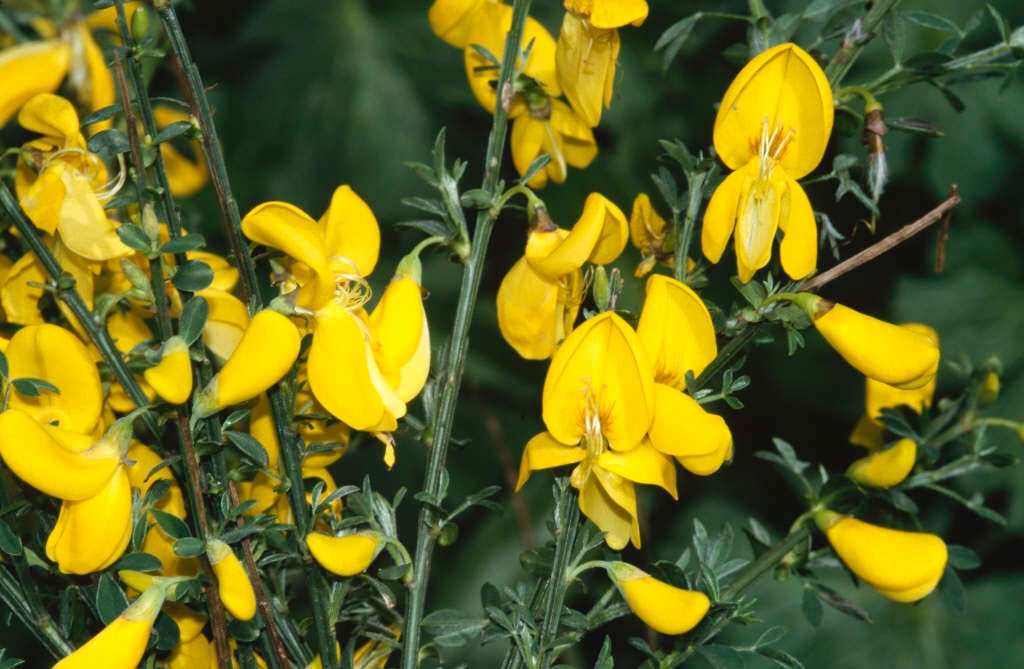Cytisus scoparius
common broom
Upright, deciduous shrub about 1.5m tall, with slender green shoots bearing small bright green leaves composed of 3 leaflets, and clusters of pea-like bright butter-yellow flowers, appearing from the leaf axils, in late spring

Buy this plant
Size
Ultimate height
1–1.5 metresTime to ultimate height
2–5 yearsUltimate spread
1–1.5 metresGrowing conditions
Moisture
Well–drainedpH
Acid, NeutralColour & scent
| Stem | Flower | Foliage | Fruit | |
| Spring | Yellow | Green | ||
|---|---|---|---|---|
| Summer | Green | Black | ||
| Autumn | Green | |||
| Winter |
Position
- Full sun
Aspect
South–facing or West–facing
Exposure
Exposed or Sheltered Hardiness
H5Botanical details
- Family
- Fabaceae
- Native to GB / Ireland
- Yes
- Foliage
- Deciduous
- Habit
- Spreading branched
- Potentially harmful
- Humans/Pets (dogs): Harmful if eaten. Wear gloves and other protective equipment when handling. For further information and contact numbers regarding pets, see the HTA guide to potentially harmful plants
- Genus
Cytisus can be deciduous or evergreen shrubs, ranging from prostrate to erect and almost tree-like, with small, simple or 3-parted leaves and pea-like flowers spring or summer
- Name status
Correct
- Plant range
- Europe
How to grow
Cultivation
Grow in any well-drained soil in full sun with a little shelter from cold drying winds; broom thrives in poor acid soils and may become chlorotic on shallow chalk soils. Plant when young, resents transplanting
Propagation
Propagate by seed or semi-ripe cuttings in late summer
Suggested planting locations and garden types
- City and courtyard gardens
- Coastal
- Cottage and informal garden
- Gravel garden
- Wildlife gardens
- Flower borders and beds
Pruning
Pruning group 3. Do not cut into old wood
Pests
May be susceptible to broom gall mites
Diseases
May be susceptible to honey fungus
Get involved
The RHS is the UK’s gardening charity, helping people and plants to grow - nurturing a healthier, happier world, one person and one plant at a time.